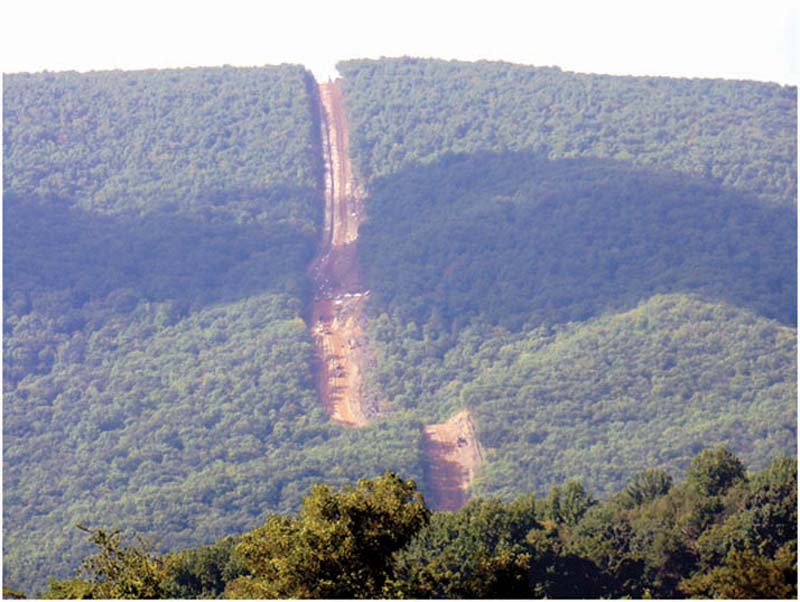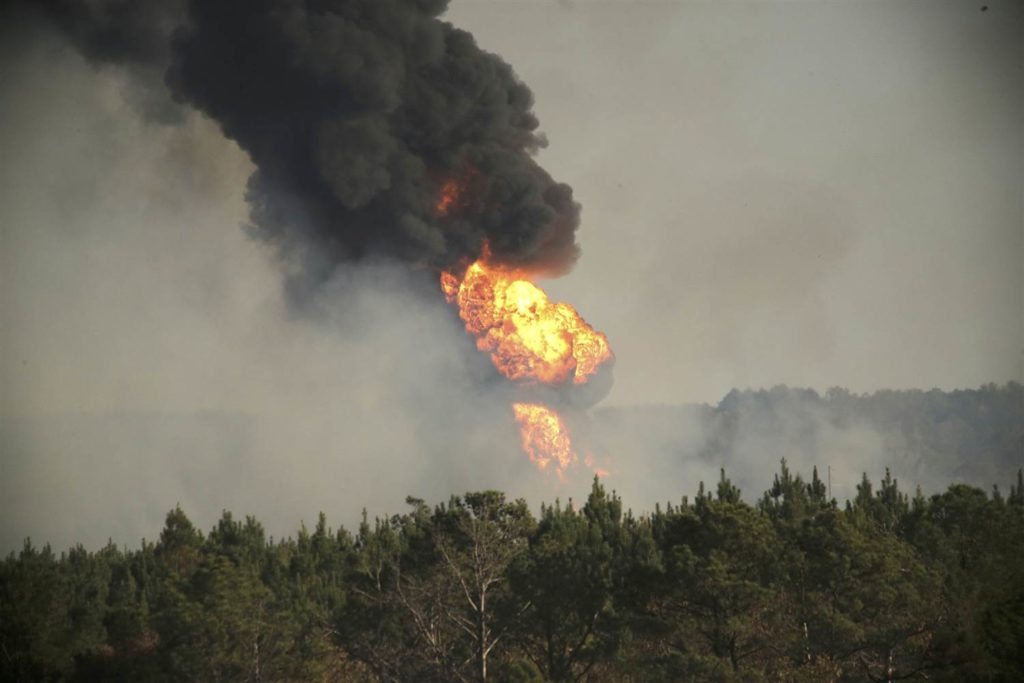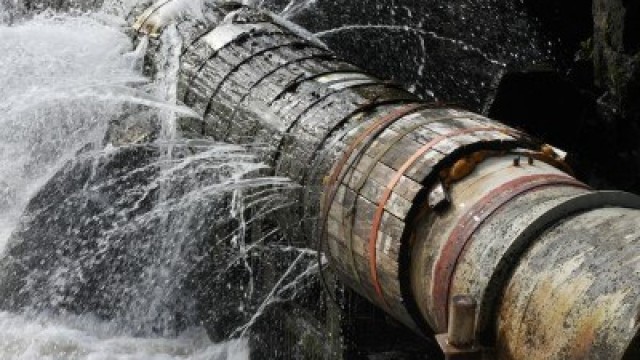There are several groups that oppose the Atlantic Coast Pipeline and the Mountain Valley Pipeline. The Southern Environmental Law Center, the Appalachian Mountain Advocates, and several local county groups. There are probably some others I don’t know about. Most of the opposition is focused in Virginia, but there is a little bit of organized opposition in West Virginia.
We’re in favor of the pipeline, as the additional takeaway capacity should increase the amount of development in West Virginia, and increased development here will increase the amount of business we do.
At the same time, it kind of hurts to see long stretches of West Virginia become less wild and wonderful.

This may not be West Virginia, but it sure looks a lot like what I’ve seen.
On the other hand, all but a few thousand acres of West Virginia was clear cut by the first few decades of the 20th century, so it wouldn’t be the first time that West Virginia has come back from intense environmental impacts.
That’s all beside the point, though.
These pipelines are going to be in the ground for decades. Why? There is enough gas in West Virginia to produce for decades, and in spite of the green movement (nothing against them, I think solar, wind, geothermal, and wave/tide are really cool tech) stating it can provide enough energy, the numbers just don’t support the claims. It’s going to be decades before green energy is more than just a small proportion of total energy output. So we’re going to need these pipeline for decades. There will probably be more in the future, too.
In spite of the claims of the pipeline opposition groups, we do need these pipelines. They do need to be done safely, and they do need to be done with as little environmental impact as possible, and the landowners’ needs have to be met. But they do need to be done.




